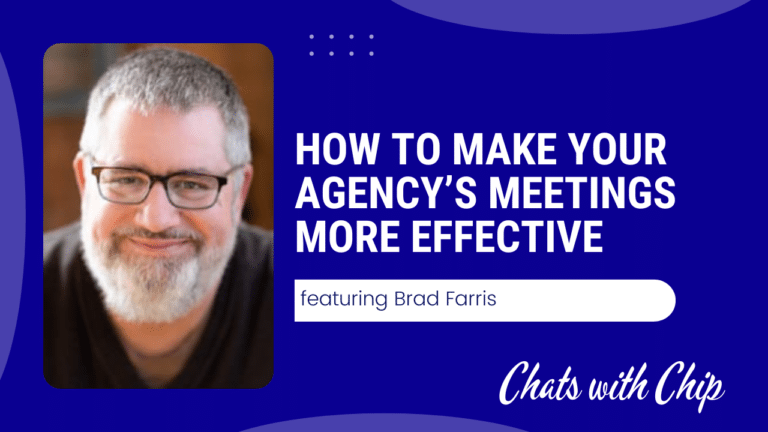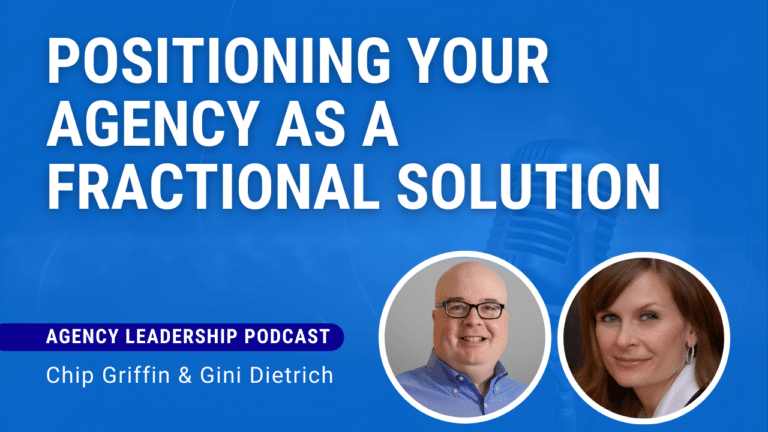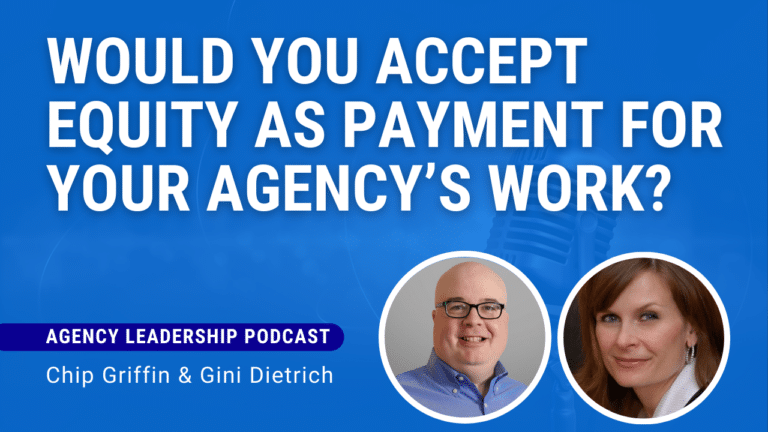Most communicators have done some freelancing at one point or another. Perhaps it is a side hustle or maybe a way to bridge the gap between employment opportunities.
Often this is how agencies get started. The owner starts as a freelancer, gets more work than they can handle, and an accidental agency is born.
Many of these accidental agencies go on to be quite successful and make the owners quite happy.
Sometimes these agencies go astray, largely because there was never a plan for the business to begin with.
And sometimes the owners go back to being an employee somewhere else because they realize that running an agency wasn’t something that they enjoyed.
Understanding the differences between each scenario can help you determine if being an agency owner is right for you.
The grass is always greener
Whether you own your own business or work for someone else, it’s not unusual to entertain the notion that the opposite scenario would be better.
If you’re an employee, you may resent how much you think your boss makes and how little control you feel you have over what you do.
If you’re a business owner, you may be jealous of the perceived safety and lower stress of your friends who are employees elsewhere.
That’s natural. There’s something about human nature that romanticizes that which we do not have.
But it’s also not entirely true. Regardless of whether you choose to be an agency owner, freelancer, or employee, there are pros and cons to each.
Control
If you ask someone why they may want to work for themselves, either as a freelancer or agency owner, you will often hear some form of the following: “So I can decide what to do.”
There’s no doubt that when you own the business, you have the right to make the key decisions. As an employee, you will always find yourself being forced to defer to your boss, even if you might disagree.
Wouldn’t it be nice to be the decision-maker, you think.
As a freelancer or agency owner, you do get to pick and choose the projects you work on, the hours you work, and the rates you charge.
You have the option of choosing to hire whichever employees or contractors you want.
You are able to make the decisions about where you will draw the line on client requests.
Yet the control may not be as great as you think.
The pressures of being independent and “eating what you kill” often coerce you into making decisions based on what others want.
So if you decide to go out on your own, you need to understand that while there is more control than as an employee, the perception is greater than the reality.
Compensation
Another popular reason cited by people to give up in-house employment is that they can make more if the clients pay them directly.
It’s easy to look at your client roster at someone else’s agency and say, “Hey, I can do all that work myself, charge the client half of what this agency does, and still make more money.”
Technically, this may be true, assuming the clients are willing to hire you directly.
But employees often overlook all of the factors that go into compensation when you’re running your own shop.
You need to manage cash flow by getting clients to pay in a timely fashion. As a freelancer, you don’t have to worry about paying employees or contractors, but if you build an agency, make sure to factor the reserves you need to maintain into the compensation calculation.
Then there are things like taxes (both business and payroll) and benefits. Employees often don’t understand these costs incurred by their employers and it can cause them to dramatically underestimate their actual compensation.
Oh, and as an employee you have more predictability about this compensation in most cases (more on that later).
Flexibility
Although employers grant far more flexibility to their team members than they did a decade or two ago, there’s no doubt that if you are a contractor or agency owner you have more.
Sort of.
You do indeed get to decide when and where to work. You can set your own daily agenda and vacation schedule.
You can slip out to go to a kid’s game or school activity without having to ask permission from your boss.
At least, that’s how you think it will work.
The reality is that when your name is on the door and you have clients, they’re more in charge than you think.
To take a vacation, you must either be confident in your ability to tell clients that you won’t be able to help them while you’re gone. If not, you need to line up backup help (at a price, naturally) or sacrifice part of your vacation time to work.
You can walk the dog or go to the school play without this fear — as long as your client doesn’t have a crisis or looming deadline.
Even as an agency owner with employees, the reality is that most owners take on more essential duties than they may even realize, eating in to the flexibility they once dreamed about.
Role
Most employees have a fairly well-defined role in their job descriptions. Some organizations stick closer to these frameworks than others, but each team member has their “lane.”
As a freelancer or agency owner, your role is much broader.
Freelancers must handle not just client service, but also business basics. More important, they also have a significant business development role. Clients don’t (usually) just fall out of the sky, so freelancers need to be prepared to put sales and marketing in their own job descriptions.
Agency owners take on all of the roles of a freelancer, but add to it the management and maintenance of a business. With contractors or employees, you can expect to spend even more time on those duties. And the larger you get, the more effort you need to put in to continue to grow a pipeline and close new business.
Oh, and when you’re on your own, you also take on many of the invisible responsibilities you don’t even think about most of the time as an employee: office cleaning, IT, maintenance, administration, and more.
Responsibility
As an agency owner or freelancer, you are taking on greater responsibilities than you had as an employee.
The responsibilities to your clients may be fairly similar, but everywhere else the burden increases.
Your first responsibility — earning enough to support yourself and your family — doesn’t change but looms larger.
There is no even semi-guaranteed income to be had as a freelancer or agency owner. You find clients, bill clients, and (hopefully) get paid by clients in a timely fashion.
Only then do you meet your responsibility to put food on your table.
And if you go the agency owner route and hire employees, you are now responsible for putting food on their tables, too.
Sure, they have a responsibility to do their part, but it’s ultimately up to you to make payroll on time.
While your actual responsibility to clients may not change, it does land squarely on your shoulders to make sure that expectations are met. You can’t bring your boss into the call to help smooth things over. It’s all on you.
You also take on additional legal, financial, and regulatory responsibilities. Payroll taxes, health insurance plans, retirement programs, and more are all your duty to handle.
Stability
Just as control and compensation often top the list of perceived benefits of becoming a freelancer or agency owner, concerns about stability often top the list of anticipated risks.
The natural and legitimate concern is that when you run your own business, if you lose a big client, you won’t have enough income.
That’s absolutely true, but a similar risk exists in most agencies as an employee — even at the biggest shops.
When agencies lose clients, it puts jobs at risk.
That’s true whether you’re the owner or the employee.
While there is more predictability as an employee of an agency, the stability isn’t really all that different.
While it does take more foresight and planning, it could be argued that as a freelancer or agency owner you have greater ability to create a diversified client base to mitigate the risk.
Finding new clients or a new employer involve similar challenges. Ultimately, everyone needs to determine what risks to stability they would prefer to undertake.
Satisfaction & Stress
The decision of whether to be an employee, freelancer, or agency owner requires a careful analysis of how the other factors will impact the individual’s level of satisfaction and stress.
Weighing all of the pros and cons while looking inward to recognize what drives you and what risks you are willing to take helps to make the final decision.
If you thrive on the idea of building something on your own, being entrepreneurial, and taking risks, then being an agency owner may be right for you.
If you love providing client service, don’t mind doing some business development, and crave more flexibility, then being a freelancer may be right for you.
If you enjoy working with colleagues and clients, embrace a more stable environment, and have little interest in the nitty-gritty of running a company, then being an employee may be right for you.
Nobody can make the decision for you, but it is important to carefully examine the costs and benefits involved before believing that the grass is actually greener on the other side.











